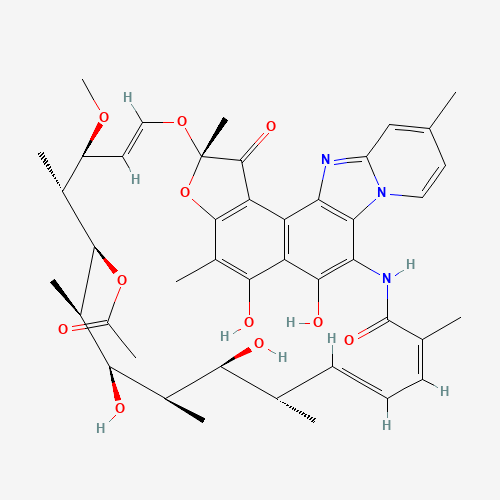Does Rifaximin Make Some Antibiotics Less Effective in Liver Patients?
 New VCU-led research raises questions about whether long-term use of rifaximin, often used to treat people with liver disease, could make the antibiotic daptomycin less effective.
New VCU-led research raises questions about whether long-term use of rifaximin, often used to treat people with liver disease, could make the antibiotic daptomycin less effective.
Many people with liver disease rely on rifaximin to prevent serious brain-related complications. Following the publication of the Nature paper (by A. Turner et al), researchers led by Jasmohan Bajaj, M.D., a gastroenterologist with the VCU Stravitz-Sanyal Institute for Liver Disease and Metabolic Health and the Richmond VA Medical Center, decided to review whether patient data suggest that this is problematic.
Rifaximin is a medication used to help people with cirrhosis avoid hepatic encephalopathy, a condition of patients with cirrhosis which can cause confusion and other brain issues. Daptomycin, on the other hand, is a strong antibiotic that doctors use when other antibiotics don’t work. Given that people with cirrhosis often need antibiotics, it’s critical to ensure that daptomycin remains effective.
To understand whether the use rifaximin with daptomycin affects mortality, the researchers looked at medical records from two large groups of patients: veterans from the Veterans Affairs system and patients from a national database called TriNetX. They focused on people who received daptomycin between 2010 and 2019; the results were published by the journal Gastroenterology.
In the VA group, 2,237 people took daptomycin, and 118 had been on rifaximin. In the TriNetX group, 2,291 people took daptomycin, and 643 had used rifaximin before.
The scientists then checked how many of these patients died, had serious infections, or needed a liver transplant.
While initially, it appeared that patients who took rifaximin were twice as likely to die within 30 days of getting daptomycin, but this association disappeared when sickness severity was taken into consideration.
“Despite controlling for important factors that typically link with inpatient outcomes in cirrhosis, we did not demonstrate a significant mortality difference with rifaximin in daptomycin users,” the researchers wrote. “This is especially noteworthy since rifaximin is usually initiated in patients with more advanced cirrhosis.”
Results from the VA group:
- 511 patients (22.8%) died within 30 days of taking daptomycin
- 695 patients (31.1%) developed sepsis, a dangerous infection-related condition
- 59 patients (2.6%) received a liver transplant
The average dose of daptomycin was 6.15 mg/kg, and 14.1% of patients also received another antibiotic, linezolid.
Patients on rifaximin were more likely to have serious liver disease. They were also more likely to end up in the ICU during their hospital stay.
Results from the TriNetX group:
- 753 patients (32.9%) either died or received a liver transplant within 30 days
- 422 patients (18.4%) died without receiving a liver transplant
- 342 patients (14.9%) received a liver transplant
- 396 patients (17.3%) developed sepsis
- Among patients with available dose data, 97.5% were on a 500 mg dose of daptomycin
- 20.4% of patients also received linezolid
As in the VA study, rifaximin users had more severe liver disease and were more likely to be taking additional medications.
After adjusting for the disease severity rifaximin did not significantly affect liver transplant rates, death rates, rates of development of severe sepsis or use of rescue medications such as linezolid. Resistance patterns were available in a minority of patients but there was no signal for higher resistance among rifaximin users in the VA cohort.
This study suggests that taking rifaximin will not affect the prognosis for patients with cirrhosis. Rifaximin remains an important and safe medication for people with liver disease and hepatic encephalopathy.